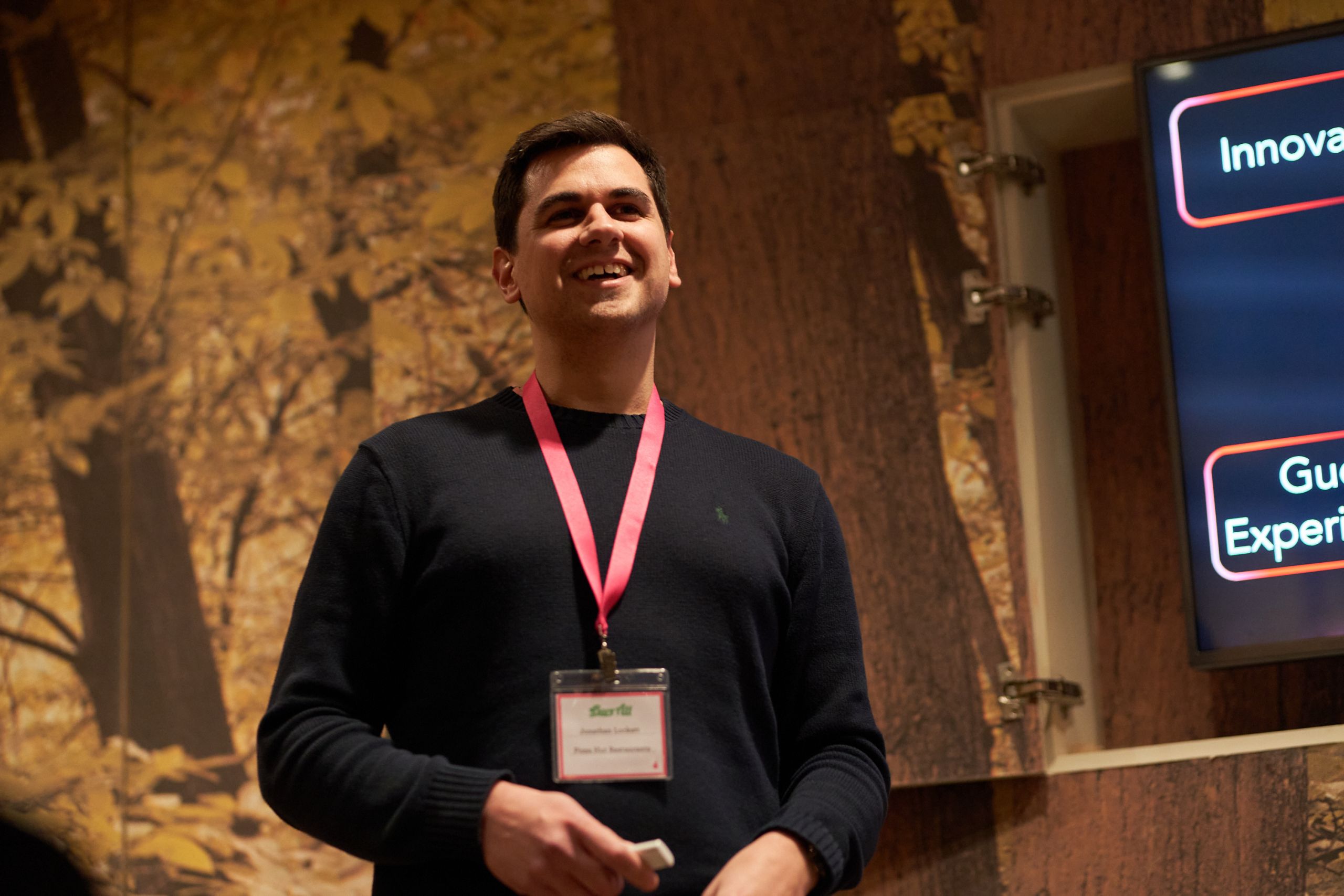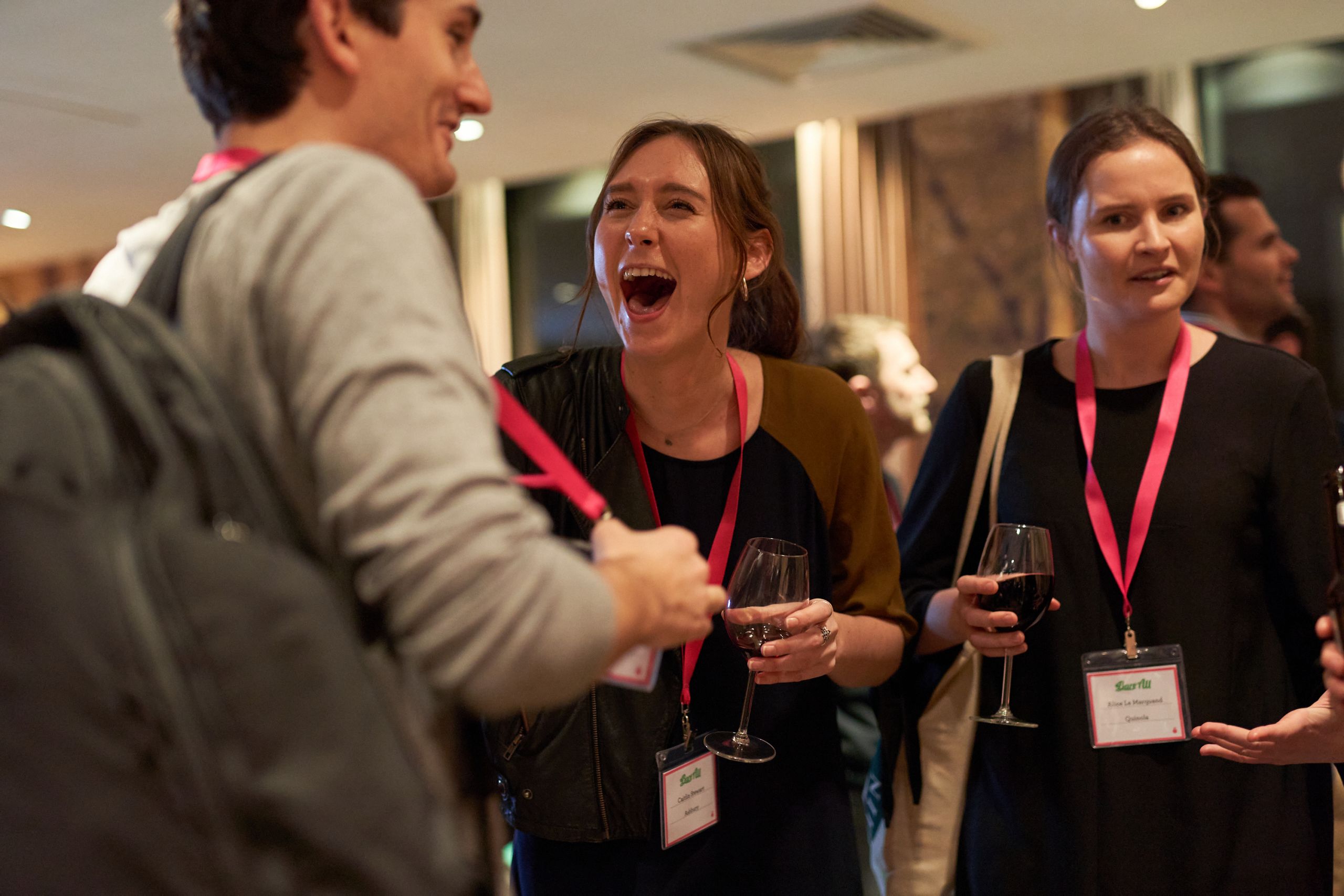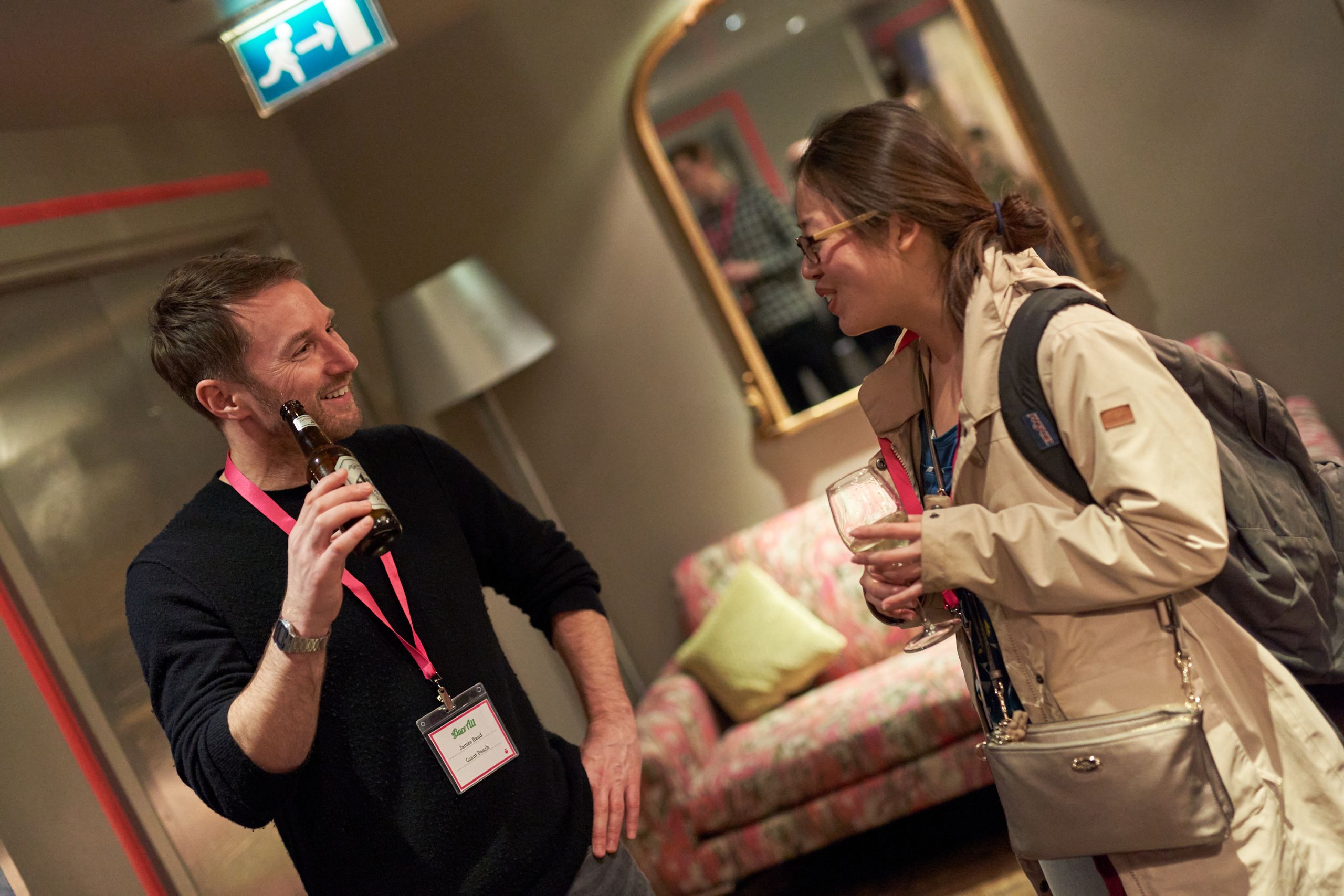BareAll: Eat Your Way To A Better World
What a difference a (few) day(s) makes…
This time last week, the Peaches were making our final preparations for BareAll. Now, one week later, it’s pretty unimaginable that had it been scheduled for this week, we would have continued with the event.
Transforming the carbon impact of a much loved brand
Jonathan Lockett, Pizza Hut Restaurants

But, continue we did – and let us take this opportunity to say a BIG FAT thank you to those that did come together to support us and hear from Pizza Hut Restaurants’ brilliant Sustainability Manager, Jonathan Lockett. The atmosphere was like no other with the energy of those who braved it and the community spirit coming together in uncertain times.
We were chuffed to have Pizza Hut Restaurants on board and totally fascinated by Jonny’s account of how the business is evolving and challenging itself to achieve net zero carbon emissions by 2030 (if not sooner).
As with most things currently, we’re sharing his words of wisdom digitally for all to enjoy.
N.B. Jonny started his talk with a disclaimer; he works for Pizza Hut Restaurants, which are NOT Pizza Hut Delivery. Pizza Hut Restaurants are the sole operator of the Pizza Hut brand for restaurants in the UK . (Judging by how strongly he put this point across, we reckon we’d be in big trouble if we didn’t tell you guys ).
Jonny has been working for Pizza Hut Restaurants for ten years, in varied roles across HR, finance and much more. He’s optimistic about the future of the company, and described how they’ve been around almost 50 years, serving 20 million people a year. That’s a lot of pizzas.
Jonny put the success – and his belief that they will survive the current crisis – down to a few factors:
- The owners of the business are also the managers, so they can implement change easily and quickly; it has a small business feel, despite being anything but small
- They consider their workforce to be incredibly important and value them greatly. Many staff have been there over 35 years and have access to a bursary to fund their hopes and dreams!
- Restaurant Management execute their routines exceptionally well and deliver a consistent and friendly customer experience. Jonny puts the challenges of a lot of smaller brands down to their inability to do this well
His optimism was, however, tempered with a sense of realism about falling numbers of visitors in the restaurant sector – a downward trend that has undoubtedly ramped up a few notches recently.
In order to maintain their bottom line and work towards their net zero target, Pizza Hut Restaurants are looking at many different sectors of the business through a sustainability lens.

Plant-based Pizzas
Despite the warm reception to Pizza Hut Restaurant’s plant-based pizzas over the last few years, Jonny explained that they are trying to move away from shouting about the offering too much. This is part of an attempt to normalise it and bring a sense of rationality to bear. As he outlined, only 1% of the population are vegan, but more and more people are trying to incorporate the occasional plant-based meal into their diets. So PHR isn’t aiming for the 1% – they’re aiming for everyone to get involved.
They are proud of their innovation in this sphere; and indeed, innovation is in their blood – they were the first to do stuffed crust.
Their Pepperphoni got a great reaction (probably, as Jonny admitted, down to the rad name) and they were justifiably proud of this pea-protein alternative to the mix of beef and pork (who knew?!) that is standard pepperoni. But, from a carbon footprint point of view, Johnny believes that if they can move towards lab-grown meat that people genuinely want to eat, this would be an even better approach than the carbon footprint associated with meat protein products.
Reducing Waste
Offering plant-based options is just one of the options the team are looking to explore more deeply; to get to the root truth of whether what they’re doing is really of benefit on a macro level. For example, plastic is seen as the bad guy. But a plastic bottle can be truly circular; it has a lower carbon impact than glass and is highly recyclable, so in principle it can and should be reused. Similarly, they won’t buy compostable packaging just because it’s compostable; the length of time something takes to break down needs to be scrutinised.
Food Waste
One of Pizza Hut Restaurants biggest areas of concern is food waste, with the business taking a leading role in the industry and representing the sector as a Courtauld 2025 steering group member with WRAP. According to Jonny, the business has reduced operational food waste by 50% since 2015 but the focus remains on consumer behaviours. The business has a food donation programme in half of its sites and is continuing to roll it out wider, the hope is that talking to their guests about this more will help to reduce waste on plates.
The Supply Chain
If you are a business, argues Jonny, 10% of your carbon footprint likely will come from your energy supply. If you buy green energy it’s one quick way to reduce your footprint but buyer beware! Not all green energy is the same and quite often you are buying green certificates (REGO’s) rather than real green energy. Interrogate what it is that your energy supplier is doing, are they selling you REGO backed electricity (which for all intents and purposes is green but could be seen as greenwashing) or are they ploughing their profits back into source of renewable energy?
On the tricky subject of palm oil, argues Jonny, the damage has already been done, now it is about maintaining what is there in a responsible manner and protecting remaining habitats. Palm as a source product is extremely high yielding because the whole palm can be used in production, the alternative to that is ripping it up and starting again but what else should be used instead? Using RSPO certified palm oil is as close as you can get to doing the best thing in this situation, other than removing palm oil completely.
When it comes to one of the most methane-belching mammals there is, cows, Jonny suggests it’s a real fine line between changing habits and a supporting a traditional industry. Everyone points to the cow as being the enemy but what if cows were better? What if dairy production was better? What if their feed sources were better? Trends for dairy alternatives are emerging and will no doubt form a part of the future, but customer habits won’t just change overnight. Producing better cheese and supporting their farmers is a common objective shared by Pizza Hut and their cheese supplier.
Food For Thought
Jonny’s parting sentiment was; how do you grow AND get better?
The answer is to challenge ourselves and question what we are told, to find the truths and to do the things that really will make a difference.
Collaborate, go to events, talk to the public, learn. There are so many problems that need solving, we can’t do them on our own. Policies won’t work without serious change in infrastructure and behaviours.

As we’re sure many people are feeling, we were gutted that this BareAll couldn’t go ahead in the way we’d hoped; it was destined to be our biggest and best yet, with some excellent brands and a huge guestlist. BUT we will do our best to be back and re-run the event when there aren’t so many more important things to be worried about.
We’re also going to be sharing lots of content over the next few months to help everyone make the most of digital in these uncertain times. The internet and technology really comes into its own in times like these, and we want to do all we can to help as many people take advantage of the opportunities it will provide.
So… Stay safe, stay sane, stay in touch.